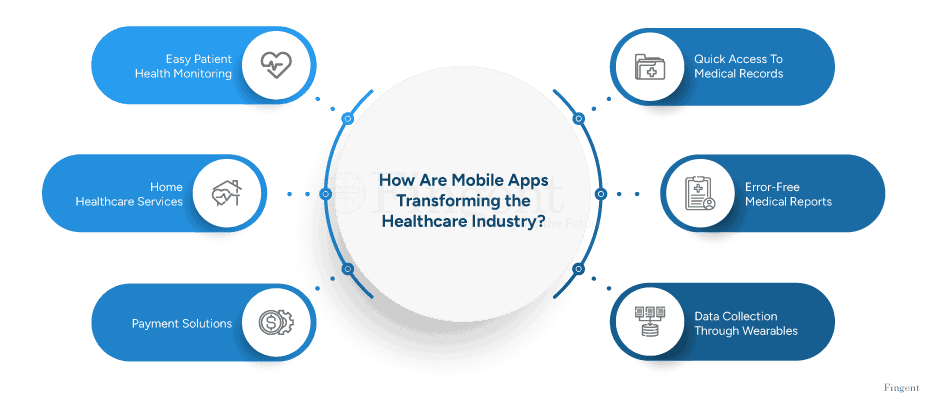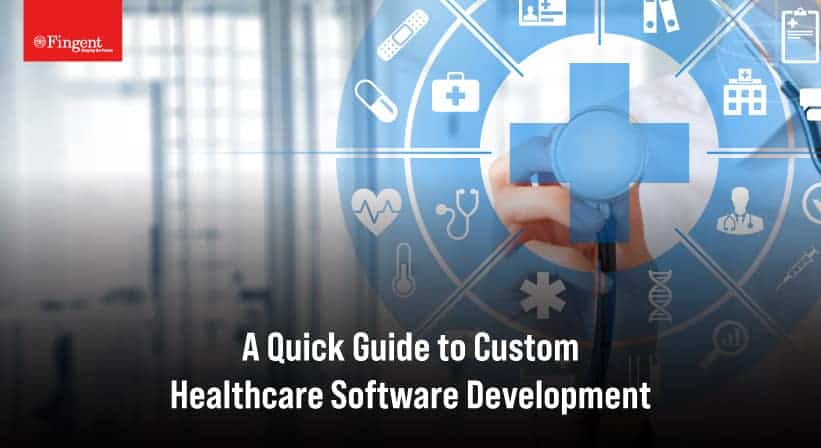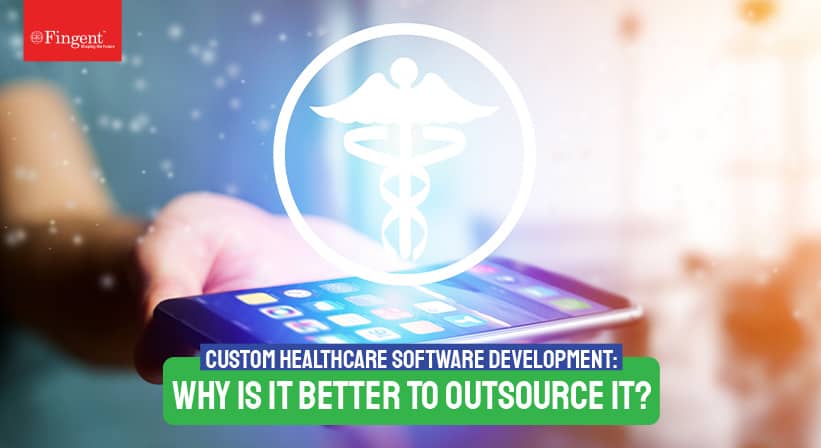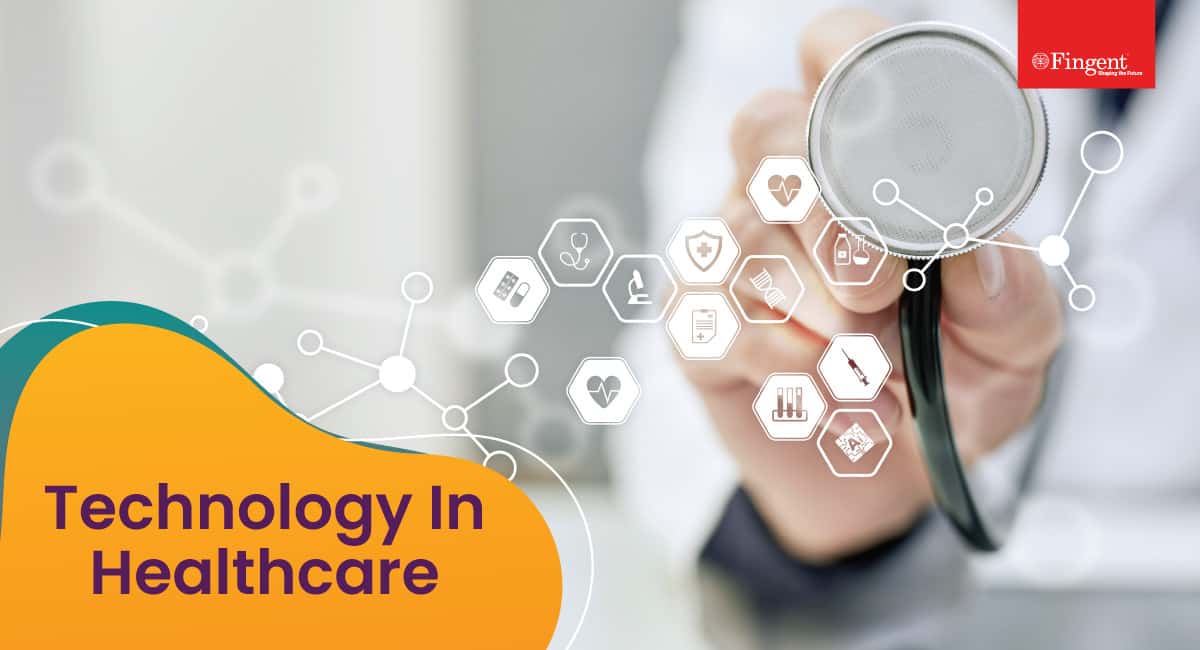Healthcare Technology and Mobile Apps: Changing The Face Of Patient Care
There was a time when sifting through piles of paper-based medical records was an everyday task for healthcare professionals. Today, however, healthcare technology has simplified processes, making them more effective, streamlined, and accessible. Mobile applications, in particular, are equipping both healthcare professionals and patients equally to connect effectively and execute better treatments and facilities. From telemedicine to remote monitoring, instant diagnosis, and easy access to patient data, healthcare technology and mobile apps are paving the way for revolutionized patient care and healthcare services. What does the future of healthcare technology look like, and how much is it impacting the domain now? Find all that and more in this 3-minute read!
Build Custom Healthcare Technology Solutions That Caters To Your Unique Challenges & Boosts Patientcare Services.
What Is Mobile Healthcare Technology?
Healthcare mobile applications include any applications related to ensuring people’s health and wellness. These apps can be built to serve different purposes. The most popular of them are fitness apps, which again might be categorized with functionalities that are subjected to exercises, weight, or diet management. Almost 3 in 10 adults report using at least one health app on their smartphone.
Medical applications built for hospitals, on the other hand, ease booking consultations and simplify doctor-patient collaboration. Medical applications can also be specifically designed for clinical and medical purposes. These equip healthcare professionals to access the right data, diagnose faster, track health conditions in real time, and provide personalized healthcare services.
Custom healthcare software development whereas, is the process of creating a progressive application that caters to the specific needs of an organization. There are two key factors that determine this development:
- For healthcare professionals to check and track their patients’ health. It can also include managing staff administration, appointment scheduling, etc.
- Patients can use the app to manage their health. They can also receive medical advice and book appointments.
Studies show that investors’ funding in the digital health industry amounted to almost 45 billion U.S. dollars in 2021! Clearly, the market for healthcare mobile apps has shown much growth and opportunity.
Why Mobile Applications Are Important in Healthcare?

The healthcare industry has seen many benefits thanks to healthcare technology and mobile apps, from emergency responses to treatment monitoring and direct communication with diagnosed patients. These apps can provide many tools to assist the hospital and patients. They also help improve efficiency in emergency management by alerting first responders automatically. These applications can optimize even the administration department of a healthcare center. They assist with tasks like record maintenance, documentation, clinical decision-making, and information management. Listed below are some of the revolutionized aspects of healthcare:
1. Health Monitoring of Patients
Patients can monitor their health through fitness bands and wearables, which connect to their smartphones and tablets. These can help track daily activities such as walking, sleep patterns, and dietary habits. This development has shifted the world of healthcare professionals and patients. It automates tasks like record maintenance and provides real-time access to health records.
Read more: Information Technology in Healthcare: Applications and Role
2. Home Healthcare Services
These services can calculate medication intake, monitor medical equipment, and meet other requirements. With these applications, patients can choose to receive at-home care in real-time. This is vital for patients with special needs who can’t regularly visit hospitals. These patients can range from senior citizens to people with mental and physical disabilities.
3. Payment Solutions
The development of medical applications has facilitated seamless payment processes. Patients can make bill payments without waiting for hours in the medical institute. With optimized payment solutions, they can safely make payments in an instant.
4. Medical Records
This is another widespread transformation medical apps bring to the healthcare industry. With these apps, doctors and patients can maintain medical records on the cloud. Here, they are not at risk of being misplaced or corrupted. Recording medical reports also helps doctors make quick medical decisions during emergencies.
5. Medical Reports
Healthcare professionals need to be accurate in what they do. Any errors made by them can cost lives. Medical errors mostly occur in diagnosis or oversight of previous medical reports. Fortunately, these instances have decreased since the integration of technology in healthcare, such as artificial intelligence for diagnosis. AI, such as machine learning and data analytics, provide accurate reports that support doctors in treatment. Quick access to patient reports on mobile devices also helps save time and make timely and accurate decisions.
6. Data Collection Through Wearables
Wearables such as pedometers can be integrated with mobile app development. This can help them track and automatically record health-based data in real-time. These apps will gather daily patient health data from their wearables and store it in a dataset. Later, this dataset can be used to track health progression or regression.
What Are the Benefits of Mobile Devices in Healthcare?
Medical app development can benefit both the hospital and patients. The advantages are innumerable. Listed below are some of the advantages that hospitals and patients gain.
For Healthcare Professionals:
1. Efficient Patient Management
Medical apps can provide real-time updates and notifications to medical staff. This will ensure that they cater to patient needs with accuracy. It also reduces the time spent waiting for updates. Patient data can be uploaded to the software cloud in real time. It can be accessed by any medical professional from here. This centralized access to patients helps professionals make quick decisions. All these features enhance the efficiency of the organization.
2. Time-saving Communication
In the field of medicine, communication is life-altering. Healthcare professionals’ collaboration and coordination must be flawless. Mobile apps allow professionals to communicate with each other. This way, they can share critical patient information. Electronic health records (EHR) systems also provide secure messaging chatrooms. Here, patients can confide in medical staff without fear of privacy breaches. These systems also help staff access patient data from mobile devices. Any changes in patient status will be altered for stakeholders through these apps. This ensures that treatment plans, administrative tasks, and crucial decision-making are prompt and cohesive.
3. Reduced Costs
Streamlining processes with the help of healthcare technology cuts down operational costs. It eliminates the need and risks of manual labor. Thus, optimizing resource use leads to cost efficacy. Some other financial benefits are reduced labor costs and administrative expenses. Accurate diagnosis with mobile application AI can also save organizations from costly lawsuits. They also optimize resource allocation and identify cost-saving opportunities.
4. Streamline Administrative Tasks
An integral benefit of mobile apps in healthcare is the streamlining of tasks. Through digital documentation, they mitigate the risk of errors in manual data entry. These applications can automate various mundane tasks and optimize them. From scheduling appointments to accessing previous medical records, these apps improve operational efficiency.
5. Cut Risk of Misdiagnosis
This is the most important benefit of mobile apps in healthcare. Data Analytics helps healthcare professionals evade the risk of misdiagnosis. Health apps can also nullify any challenges leading to inadequacy in treatment. These apps can store and retrieve reports of patient’s health conditions in real time. This ensures that doctors prescribe accurate medicines and treatment options.
For Patients:
1. Access to Medical Records
Patients like to be kept in the loop about their treatment. Medical apps allow them to access and understand their diagnosis. They can feel proactive and in charge through educational videos and health articles. These applications also provide interactive features like virtual tours, which help reduce anxiety and enhance patient comfort.
2. Remote Consultations
A well-appreciated feature of mobile apps is their remote consultation feature. This feature allows users to consult doctors at any time from anywhere and view medical records from their online consultations at home, promoting accessibility and convenience.
3. Health Monitoring and Lifestyle Tips
Mobile applications can be connected with wearables and gadgets to track health conditions. These apps can alert the user when there are fluctuations. They can also schedule appointments and connect to care providers hassle-free. Some mobile applications also provide educational tips for improving lifestyle. Patients can also access chatbots that will answer their questions for minor issues. This adds another layer of efficiency to mobile apps.
4. Easy Appointment Management
Scheduling appointments is a hectic process. Some people avoid visiting the hospital due to this hassle. Medical mobile apps mitigate this challenge. With its digital support, anyone can connect to many doctors and book appointments. They can also browse the professional’s profile and add filters for personalization. For regular patients, they can add a feature to update their appointments consistently. The app further optimizes communication and sends appointment reminders. They also provide options to cancel or reschedule appointments with ease.
5. Hassle-free Payment
Through secure payment portals, patients can make quick transactions. This way, they are saved from waiting in long lines for hours to make one payment. The payment systems also guarantee security and confidentiality. Users can also personalize payment methods, pay online, and contact insurers.
How Is AI In Healthcare Enhancing Patient Outcomes and Experience?
What Is The Future of Mobile Health Apps?
As mentioned earlier, healthcare technology and mobile apps will continue to progress with technology. This is one of the rare certainties of the world. Recently, Grand View Research conducted a study to determine the growth of technology in healthcare. They concluded that by 2030, the mHealth apps market size will grow at a CAGR of 17.7% to reach $86 million.
Artificial intelligence has already been incorporated into healthcare industries to solve various challenges. This collaboration is expected to grow further with the advancement of AI-driven applications. These apps can analyze data for early detection and provide virtual assistance. With this integration, the possibilities of healthcare app development are endless.
How Can Fingent Help Build and Find Opportunities with Healthcare Apps?
At Fingent, we build applications with intricate customization. Our healthcare clients have found operational efficiency, ease of collaboration, and process automation with our tailored healthcare technology solutions. One such example is our collaboration with NovitaCare, an early-stage healthcare startup in the US. The client wanted to improve engagement with their stakeholders and create better patient outcomes. We helped them develop a Healthcare Service Platform for their clientele that eased administration, optimized workflows, and streamlined HIPPA compliance.
Another example is the invoice and expense claim management system that we designed for MundiPharma, a leading pharmaceutical company with over 50 years of experience in the field. The application helped them streamline the payment process, issue invoices, and maintain operational transparency with intuitive dashboards.
Our professionals integrate emerging technologies to offer the best service. With our experts always having their finger on the pulse of technological developments, you can always stay one step ahead of the competition. With innovation backing your healthcare goals, we can pave your path to achieve excellence.
Connect with our experts today and discover innovative opportunities for your healthcare organization.
Stay up to date on what's new

Recommended Posts

22 Jun 2023 Healthcare B2B
Custom Healthcare Software Development – Ultimate Guide!
The world of technology keeps evolving and waits for no one, so it is our responsibility to keep up with it rather than fall behind. The healthcare industry has for……

13 Oct 2021
Custom Healthcare Software Development: Why Is It Better To Outsource It?
With the ongoing COVID-19 pandemic, the healthcare industry is spiraling at an unexpected speed and is continuously inventing healthcare solutions to drive streamlined operations. Medical organizations are now largely depending……

06 Oct 2020 Healthcare
7 Major Impacts of Technology in Healthcare
How Emerging Technology is Transforming the Healthcare Industry? Technology has advanced by leaps and bounds and brought about changes in every industry. The Healthcare industry is no exception. Thanks to……
Featured Blogs
Stay up to date on
what's new













